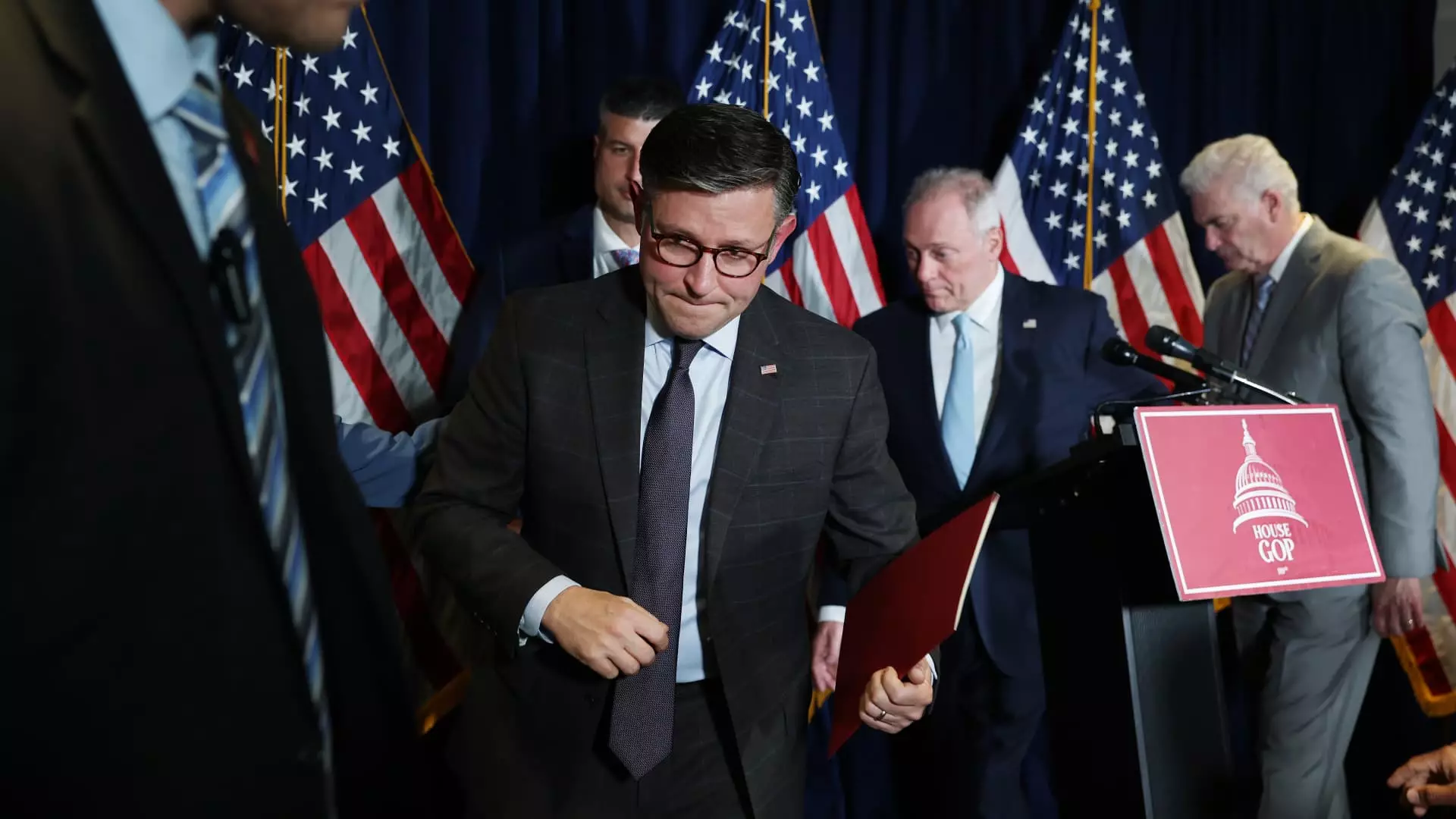In the high-stakes negotiations over government funding, the current standoff exposes a troubling trend: ideological rigidity sabotaging pragmatic solutions. House Speaker Mike Johnson’s sharp denunciation of Democrats’ demands reveals a stark reality—partisan politics often take precedence over the nation’s well-being. His assertion that Democrats are risking a shutdown to push unrelated priorities underscores a political environment where compromise is increasingly elusive. While his focus on blaming Democrats for the impasse aligns with a center-right perspective, it also reflects a broader deficiency in bipartisan cooperation, a necessity for effective governance.
The crux of the disagreement centers around health insurance tax subsidies, an issue that has become emblematic of deep partisan divides. Democrats see the extension of Affordable Care Act subsidies as crucial to maintaining affordable healthcare access, especially for vulnerable populations. Conversely, Republicans, led by Johnson, regard these subsidies as an extraneous issue that should not interfere with the essential function of government funding. The assertion that healthcare policy should be postponed until a “December debate” dismisses the urgency faced by millions—rural residents and working-class Americans—who could face skyrocketing premiums if subsidies lapse.
This attitude exemplifies a troubling lethargy in addressing pressing social issues within the framework of budget negotiations. Instead of seeking common ground, the focus remains on maximalist demands—an approach that risks blinding lawmakers to the tangible consequences of their decisions. The refusal to include critical subsidies in a temporary funding measure, despite clear evidence of their impact, underscores a political calculation that may prioritize short-term leverage over long-term stability.
Economic Ramifications and Public Discontent
The potential fallout from a government shutdown extends beyond politics; it threatens the fragile economic recovery amid a weakening labor market. Analysts from Deutsche Bank warn that a protracted shutdown could be more damaging now than during previous crises, emphasizing how interconnected fiscal stability and economic confidence are. With unemployment figures worsening and consumer sentiment waning, any disruption in government operations risks exacerbating these trends.
Furthermore, the possible disappearance of ACA subsidies would lead to a sharp rise in health insurance premiums for millions. According to health policy experts, these increases could reach nearly 75% nationwide, with rural communities facing near 90% hikes. The real-world impact of such a scenario would be devastating for families already struggling to make ends meet—yet, ironically, it seems to be a less urgent concern in the minds of some policymakers intent on political victories.
The broader political implications are equally troubling. Democrats under Schumer and Jeffries are wary of repeating past mistakes—such as the March shutdown—that eroded voter trust and Democratic support. They understand that a shutdown amidst economic turbulence could backfire, emboldening critics and deepening public dissatisfaction. Both sides are aware that public opinion despises government shutdowns; yet, their inability to transcend partisan tactics suggests a fragile political environment where ideological battles overshadow national interests.
The Dangerous Path Ahead: Partisanship Threatening Stability
The current impasse exemplifies how partisanship can undermine effective governance. Each side appears more committed to partisan gains than to forging solutions that serve the common good. Johnson’s insistence that Democrats are inserting “unrelated matters” into funding negotiations reveals a narrow perspective that disregards the essential services these policies support.
As negotiations drag on and the threat of a shutdown looms, the economic and social risks intensify. The decline in consumer confidence, combined with the potential for increased healthcare costs, could slow economic growth further, an outcome that harms all Americans regardless of political affiliation. The failure to find a middle ground not only endangers immediate stability but also erodes trust in government institutions—a perilous trajectory in an already divided nation.
In the end, what’s most troubling is the recognition that this political stalemate is less about governance and more about partisan posturing. With each passing day, the likelihood of a shutdown grows, driven by ideological inflexibility that prioritizes short-term political victories at the expense of long-term national health and economic stability. The question remains: how many more Americans must bear the cost of these political games before meaningful compromise is achieved?


Leave a Reply